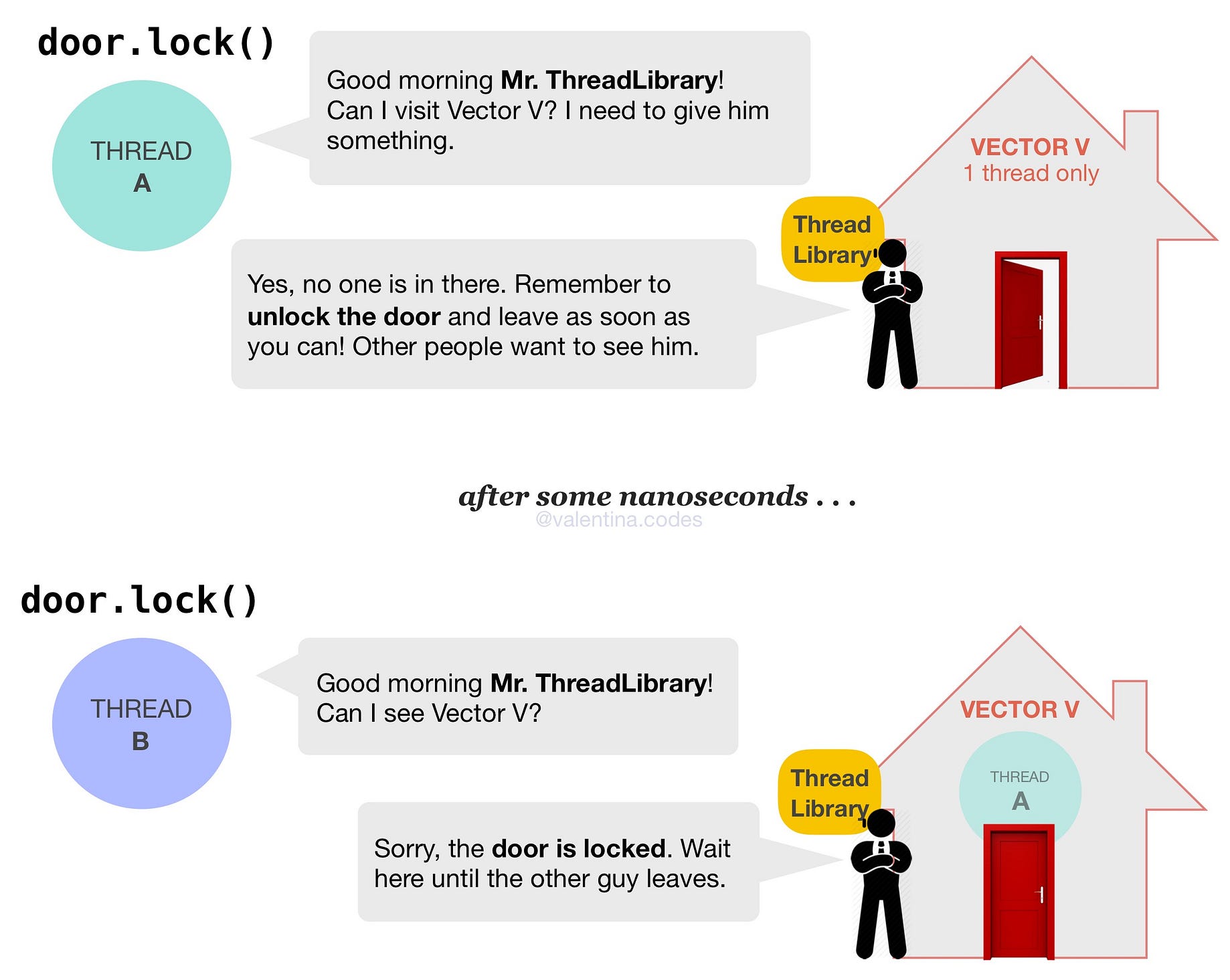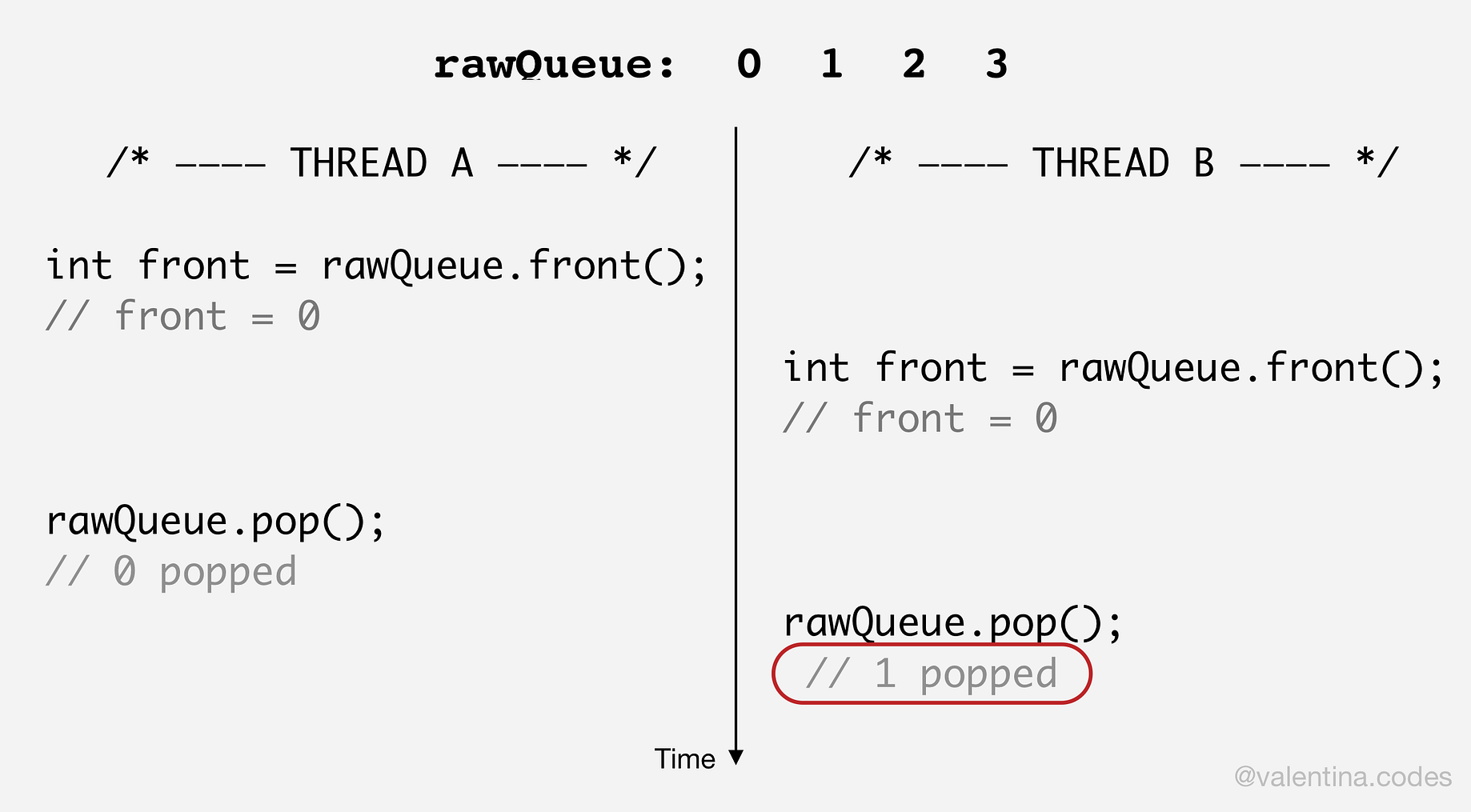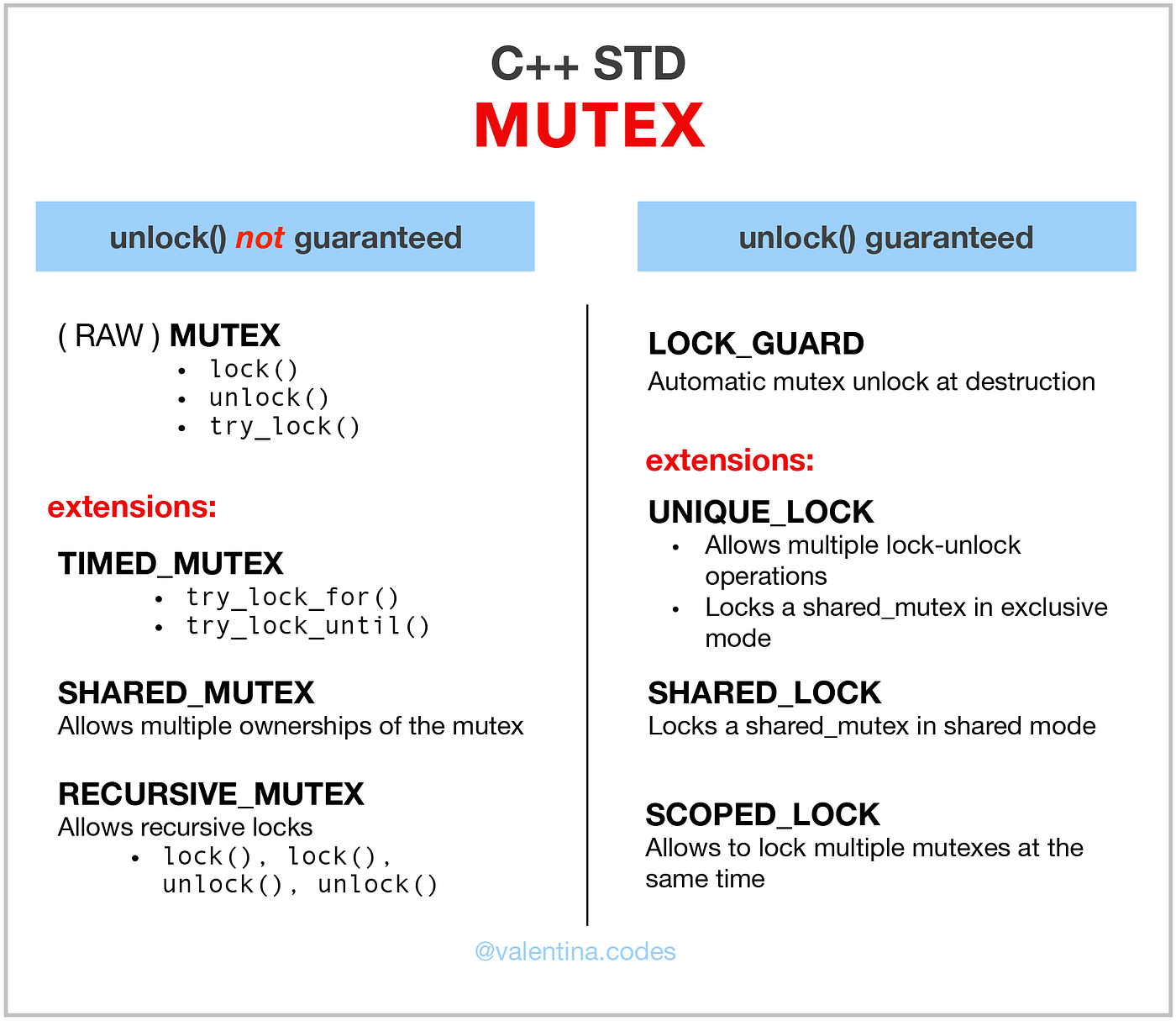C Lock_guard Vs Unique_lock Vs Scoped_lock
When a scoped_lock object is created it attempts to take ownership of the mutexes it is given. Only simple calls to constructors are analyzed.

C Parallelization And Synchronization Jakub Yaghob Martin Kruli
Stdscoped_lock stdunique_lock and stdlock_quard.

C lock_guard vs unique_lock vs scoped_lock. Locks passed as arguments to function calls or returned as results of function calls are ignored. Several threads can hold stdshared_locks on a stdshared_mutex. When control leaves the scope in which the scoped_lock object was created the scoped_lock is destructed and the mutexes are released in.
The constructor of the object lock1 locks the resource and when the object scope is over the object destructor unlocks the mutex. Only standard lock types are tracked. A lock guard is an object that manages a mutex object by keeping it always locked.
Used for the RAII style acquiring of try locks timed try locks and recursive locks. Create it without a locked associated mutex. Stdthread t while temp -1 stdthis_threadsleep_for.
Stdscoped_lock provides RAII style semantics for owning one more mutexes combined with the lock avoidance algorithms used by stdlock. This example uses an object of type condition_variable but would work just as well with an object of type condition_variable_any. Explicitly and repeatedly set or release the lock of the associated mutex.
One thread may have locked. The class lock_guard is a mutex wrapper that provides a convenient RAII-style mechanism for owning a mutex for the duration of a scoped block. A unique_lock can be created without immediately locking can unlock at any point in its existence and can transfer ownership of the lock from one instance to another.
Если вам нравятся мои уроки вы хотите поддержать меня и развитие канала то можете сделать. The class boostlock_guard is an example of the RAII idiom to make sure resources are released when they are no longer needed. This way it also allows for one liner scoped locks as well like.
A timed mutex type satisfies the requirements for a mutex type. When a lock_guard object is created it attempts to take ownership of the mutex it is given. When stdscoped_lock is destroyed mutexes are released in the reverse order from which they where acquired.
Condition_variable_any is more general and will work with any kind of lock or mutex whereas condition_variable requires that the lock passed to wait is an instance of boost. Try_lock at the cost of some additional overhead. If the client of scoped_lock does not use functionality which the Mutex does not supply no harm is done.
More complex initializer expression may lead to inaccurate results but this is rather an unusual scenario. Since C11 The class unique_lock is a general-purpose mutex ownership wrapper allowing deferred locking time-constrained attempts at locking recursive locking transfer of lock ownership and use with condition variables. Create it without an associated mutex.
On construction or by move-assigning to it the object acquires a mutex object for whose locking and unlocking operations becomes responsible. Since Im assuming that the scope is restricted to that same line as well. The object supports both states.
When creating a stdunique_lock there are three different locking strategies to choose from. The class scoped_lock is a mutex wrapper that provides a convenient RAII-style mechanism for owning one or more mutexes for the duration of a scoped block. You can use objects of these types as the Lock argument to the wait member functions in the template condition_variable_any.
Stdatomic_int temp 0. Lock_guard is a restricted version with a limited interface. From this question I understand that stdlock_guard and stdunique_lock are the same except that stdunique_lock has some extra features eg.
Available from C 14. The class unique_lock is movable but not copyable -- it meets the requirements of MoveConstructible and. Also kinda wondering what precisely were you building looks like a very interesting project you writing a kernel from scratch.
Locking a shared_lock locks the associated shared mutex in shared mode to lock it in exclusive mode stdunique_lock can be used. The Mutex need not supply all of this functionality. On construction the mutex object is locked by the calling thread and on destruction the mutex is unlockedIt is the simplest lock and is specially useful as an object with automatic duration that lasts until the end of its context.
Stdunique_lock allows for exclusive ownership of mutexes. One of the essential ones is boostunique_lock which provides several helpful member functions. You can use mutex types as type arguments to instantiate the templates lock_guard and unique_lock.
From this question I understand that stdscoped_lock is a strictly superior version of stdlock_guard. Stdtry_to_lock stddefer_lock and stdadopt_lock. When control leaves the scope in which the scoped_lock object was created the scoped_lock is destructed and the mutexes are released in.
Scoped_lock is meant to carry out the tasks for locking unlocking try-locking and timed-locking recursive or not for the Mutex. A unique lock is an object that manages a mutex object with unique ownership in both states. Avoid deadlocks by locking several mutexes in one atomic step - stdlock.
A stdunique_lock enables you in addition to stdlock_guard. Stdunique_lock is mightier but more expansive than its small brother stdlock_guard. Lock_guard and unique_lock are pretty much the same thing.
Get monthly updates about new. The constructor of the object lock2 locks the resource and the object destructor unlocks the mutex. The class scoped_lock is a mutex wrapper that provides a convenient RAII-style mechanism for owning one or more mutexes for the duration of a scoped block.
When a scoped_lock object is created it attempts to take ownership of the mutexes it is given. A lock_guard always holds a lock from its construction to its destruction. The difference is that the stdunique_lock consists of.
Stdtry_to_lock allows for trying a lock without blocking. The class shared_lock is a general-purpose shared mutex ownership wrapper allowing deferred locking timed locking and transfer of lock ownership. Besides boostmutex and boostlock_guard BoostThread provides additional classes to support variants of synchronization.
Stdshared_lock allows for shared ownership of mutexes. When control leaves the scope in which the lock_guard object was created the lock_guard is. The shared_lock class is movable but not copyable -- it meets the requirements of MoveConstructible.
Show activity on this post. In this way it guarantees the mutex object is properly unlocked in case an. A typical deadlock situation may arise if different threads try to lock resources A and B in different orders.

Prefer Locks To Mutexes Modernescpp Com

0880 Learning C Programming Lanuage

C Mutex Write Your First Concurrent Code By Valentina Di Vincenzo The Startup Medium

Programming Concurrency In C Part 2 Codeproject

C Mutex Write Your First Concurrent Code By Valentina Di Vincenzo The Startup Medium
Difference Between Std Lock Guard And Std Unique Lock

C Move Std Unique Lock To Transfer Lock Ownership Nextptr

C Parallelization And Synchronization Jakub Yaghob Martin Kruli

C Core Guidelines Concurrency And Lock Free Programming Modernescpp Com

C Parallelization And Synchronization Jakub Yaghob Martin Kruli
Programming Concurrency In C Part Two

C Parallelization And Synchronization Jakub Yaghob Martin Kruli

C Mutex Write Your First Concurrent Code By Valentina Di Vincenzo The Startup Medium

Posting Komentar untuk "C Lock_guard Vs Unique_lock Vs Scoped_lock"